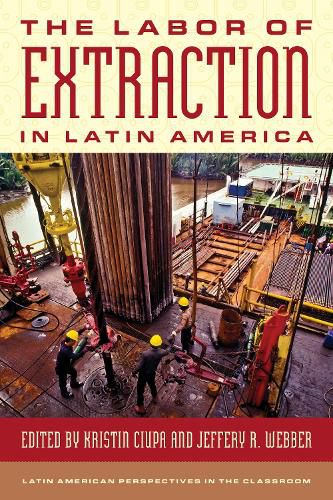Readings Newsletter
Become a Readings Member to make your shopping experience even easier.
Sign in or sign up for free!
You’re not far away from qualifying for FREE standard shipping within Australia
You’ve qualified for FREE standard shipping within Australia
The cart is loading…






Natural resource extraction and primary commodity export remain persistent features of the Latin American economy. This edited volume traces the power of labor in extractive sectors in Latin America starting in the 1980s and shows how labor shapes national export sectors, economies, politics, and societies more broadly.
Kristin Ciupa and Jeffrey R. Webber bring together a team of international experts who look at labor in several extractive sectors-including oil and gas, mining and agriculture, and migrant labor. They present a variety of viewpoints and case studies, exploring themes of the strategic organizing potential of extractive workers, the rise of informal labor and its impact on organizing and worker solidarity, and migrant labor-power as extraction. The book analyzes relationships between workers, extractive companies, states, political parties, national social sectors, and global commodity markets. The Labor of Extraction in Latin America puts the question of labor organizing to the forefront of discussions on Latin America's ongoing history of extractive capitalism, its effects on nature, and resistance against it.
$9.00 standard shipping within Australia
FREE standard shipping within Australia for orders over $100.00
Express & International shipping calculated at checkout
Natural resource extraction and primary commodity export remain persistent features of the Latin American economy. This edited volume traces the power of labor in extractive sectors in Latin America starting in the 1980s and shows how labor shapes national export sectors, economies, politics, and societies more broadly.
Kristin Ciupa and Jeffrey R. Webber bring together a team of international experts who look at labor in several extractive sectors-including oil and gas, mining and agriculture, and migrant labor. They present a variety of viewpoints and case studies, exploring themes of the strategic organizing potential of extractive workers, the rise of informal labor and its impact on organizing and worker solidarity, and migrant labor-power as extraction. The book analyzes relationships between workers, extractive companies, states, political parties, national social sectors, and global commodity markets. The Labor of Extraction in Latin America puts the question of labor organizing to the forefront of discussions on Latin America's ongoing history of extractive capitalism, its effects on nature, and resistance against it.